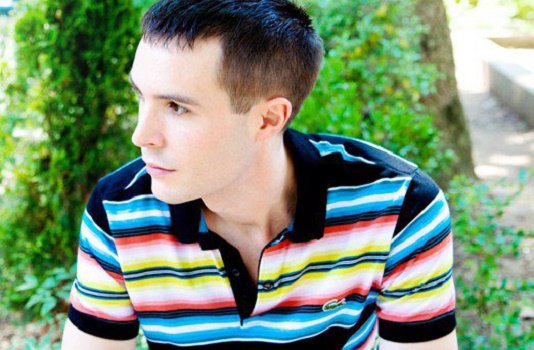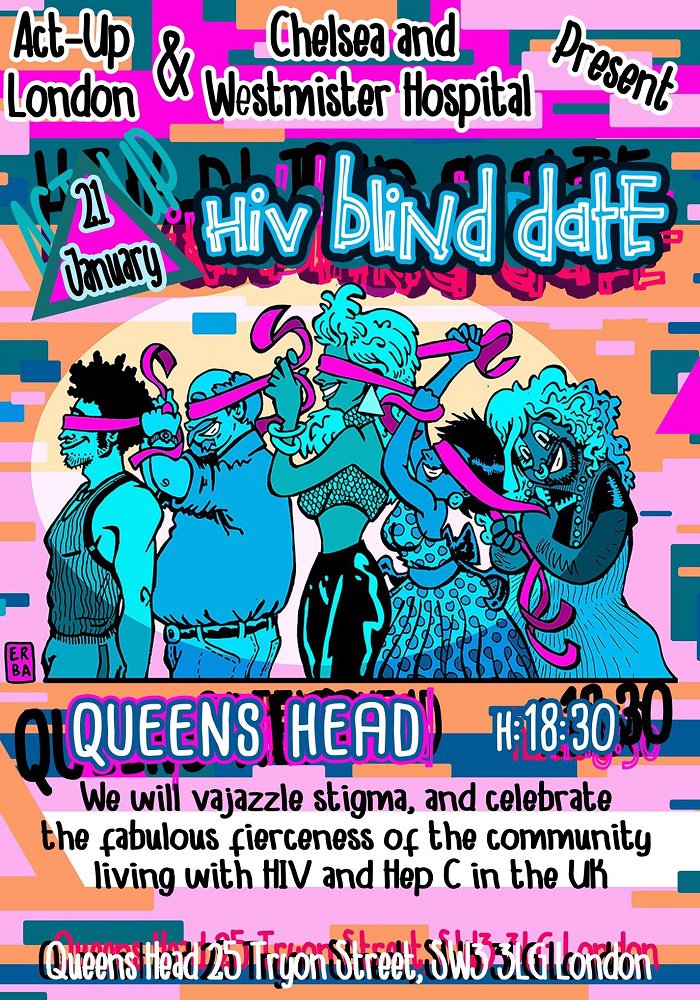‘What I’ve learned dating HIV-positive guys’
By Will Stroude

The first time I knowingly slept with someone with HIV I was 23. The boy was 20 and he told me drunk on the night bus home. He fitted an ignorant man’s HIV stereotype: he was a ketamine-sniffing rentboy, living with a sugar daddy in West Hampstead. When I asked him how he paid the rent, he snorted and replied: “My ass.”
He was also one of the nicest people I’ve ever met. I sometimes think about him and hope he’s doing okay. After he told me his status that night, I said: “Sure, we’ll just use condoms.”
The next day I lay curled up on my bed, trying to slow down my thoughts. I knew something about HIV from the magazines and GMFA flyers, and that if somebody came inside you that was a big risk. But I wasn’t absolutely clear about other methods of transmission. I remember phoning up the NHS Direct helpline, telling them I’d had my tongue up this boy’s ass, and asking whether I needed PEP.
A lovely lady at the other end of the phone carefully but clearly explained: “No, babe.”
Yet his status was why I didn’t call up the boy again. I could deal with the drugs and the escorting – working on the Soho gay scene I was never very far from either – but the virus was one small step for man, one giant leap for my mind.
In the past six years I’ve learnt a lot more about HIV, and dated two positive guys. Let’s call them ‘Cute’ and ‘Sexy’.
Cute and I were drunk when he started talking about an abusive ex-relationship. “And he gave me HIV,” he dropped into the tequila-laced conversation. I was shocked because we’d been friends before dating, and had been in many situations where HIV had been a prominent conversation topic. He’d never once mentioned his status, and I’d assumed he was negative.
Sexy told me at a friend’s birthday party. Huddled together in the corner of a shrieking pub full of whiskey-soaked drag queens, he confided in me a status he’d told no one. Then I had to come out to him as negative. He’d read an article I’d written online and had assumed I was positive too. I kissed him and grabbed his hand, and stole him away from the drag queens to go home and have him to myself. His status changed nothing to me about him, but I was worried how he felt.
I wonder how many guys are out there keeping their diagnosis and medication secret because of stigma and fear. Like those guys who repress their sexuality for the ‘straight’ life of wife, kids and IKEA flat-packs, it can’t be healthy to imprison such a storm. “Closely-imprisoned forces render and destroy”, is the quote from Charles Dickens I learnt in sixth form. When I was closeted, I understood its truth.
Unfortunately, there are powerful reasons why a guy might keep his diagnosis private.
“An HIV diagnosis can affect the individual’s relationship with his community in so many ways,” says Professor Rusi Jaspal, Chair in Psychology & Sexual Health at De Montfort University. “Just one negative reaction towards one’s positive serostatus can be immensely challenging to one’s sense of self – it can compromise one’s sense of self-worth and self-esteem, and as well as one’s sense of belonging, acceptance and inclusion.
“Thankfully, we now live in the very promising era of effective HIV treatment that mean that a positive person’s life expectancy is largely the same as that of a negative individual. Yet social stigma poses so many problems for the newly-diagnosed individual, who may fear rejection from others, the inability to ever have a ‘normal’ relationship, and who may continually question his own self-worth as he is made to feel inferior to HIV-negative people.”
I’ve interviewed many guys living with HIV now. All of them have mentioned negative reactions to disclosure – either online or in real life. One 27-year-old told me: “A guy I used to know came up to me in a bar and said “I’ve heard something really horrible about you, that you’ve got HIV.” I said “Yeah, I have” and he just turned his back on me and walked away.”
Other reactions have included being blocked on Grindr, people stating they only date ‘clean’ guys, and being turned down for sex on grounds of health reasons. This is despite the fact that a HIV+ guy on medication, who is undetectable, is virtually no risk of infection – and a far safer option than sleeping with a guy who doesn’t know his status.
“The key to dealing with this problem is a frank and open discussion about HIV: that is, more HIV education in schools, college and universities, and in other social contexts, so that people understand how HIV is contracted, how it can be prevented, and the implications that it has for one’s life,” states Professor Rusi Jaspal.
And that, my friends, is how we came up with HIV Blind Date.
“HIV is the gay scene’s boogie man,” said DJ Mark Ashley-Dupe in our Young People’s Discussion of HIV. Clearly what that boogie man needed was a group of fabulous activists from Act Up London to storm in, grab it by its ass and shove it into a light entertainment format that’s gonna vajazzle the stigma right out of its shadow.
HIV Blind Date isn’t a dating service. It’s a theatre show designed to share stories of love, dating and relationships with HIV. We want to raise awareness and celebrate the fabulous fierceness of our community, both positive and negative. Because the way to fight HIV isn’t separately, it’s together.
HIV Blind Date is on Thursday 21st January at the Queen’s Head, 25 Tyron Street, SW3 3LG. 6.30pm, and free entry. All welcome.

More stories:
Linda Perry criticises Lady Gaga Oscar nomination, claims she only wrote one line of song
Watch | YouTube star Calum McSwiggan apologises for bareback porn past
